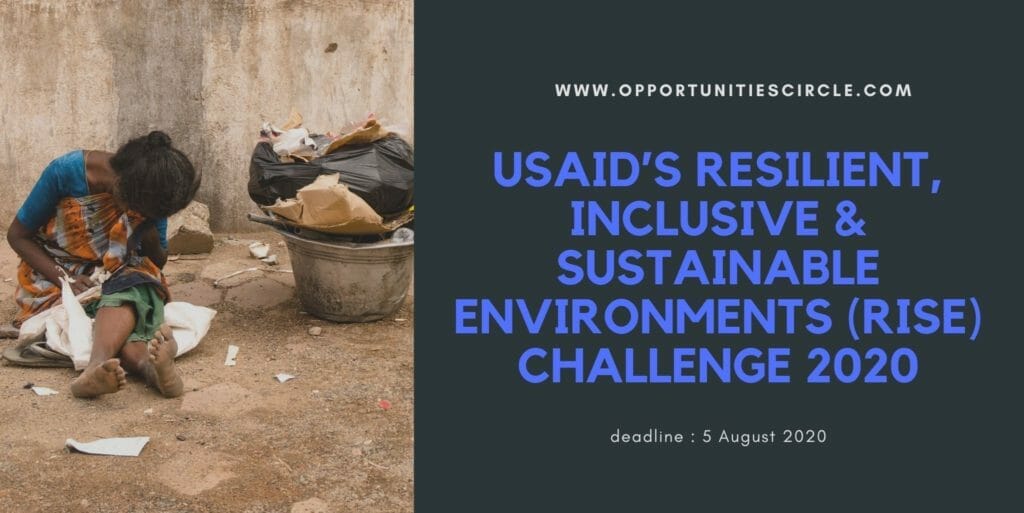Opportunities circle brings another great opportunity for the change leaders USAID’s RISE Challenge 2020
USAID invites eligible applicants to respond to RISE: A Challenge to Address Gender-Based Violence in the Environment 2020.
The challenge aims to identify and fund the innovative application of promising or proven interventions that prevent and respond to gender-based violence through programs that concern access, use, control and management of natural resources.
They also aim to celebrate and stimulate a wide range of sustainable interventions that can be integrated into the environmental programming and investments of USAID and its partners.
Gender-based violence (GBV) is estimated to affect more than one in three women globally. This widespread problem takes various forms, including sexual, psychological, community, economic, institutional and intimate partner violence, and in turn affects almost every aspect of a person’s life, including health, education. and economic and political opportunities. At the same time, environmental degradation, loss of ecosystem benefits and unsustainable use of resources are creating complex crises around the world. While billions of people depend on these natural resources and ecosystems to sustain themselves, the potential human impacts are dire, with disproportionate effects on women and girls.
Gender-based violence and environmental issues are interrelated and therefore their interactions are complex, diverse and multi-layered. In some contexts, they form feedback loops where gender-based attacks, harassment and discrimination worsen the loss of biodiversity and ecosystem resources, and this environmental degradation triggers new, more damaging forms of violence. In other contexts, preventing and responding to gender-based violence opens up opportunities for enhanced environmental action, as well as for the empowerment of women and communities.
They also aim to celebrate and stimulate a wide range of sustainable interventions that can be integrated into the environmental programming and investments of USAID and its partners.
Gender-based violence (GBV) is estimated to affect more than one in three women globally. This widespread problem takes various forms, including sexual, psychological, community, economic, institutional and intimate partner violence, and in turn affects almost every aspect of a person’s life, including health, education. and economic and political opportunities. At the same time, environmental degradation, loss of ecosystem benefits and unsustainable use of resources are creating complex crises around the world. While billions of people depend on these natural resources and ecosystems to sustain themselves, the potential human impacts are dire, with disproportionate effects on women and girls.
Gender-based violence and environmental issues are interrelated and therefore their interactions are complex, diverse and multi-layered. In some contexts, they form feedback loops where gender-based attacks, harassment and discrimination worsen the loss of biodiversity and ecosystem resources, and this environmental degradation triggers new, more damaging forms of violence. In other contexts, preventing and responding to gender-based violence opens up opportunities for enhanced environmental action, as well as for the empowerment of women and communities.





















